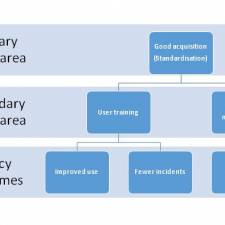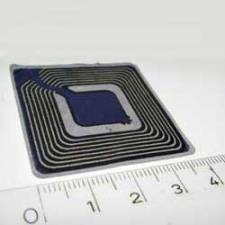Evaluation and management of equipment maintenance contracts is a very important part of the services provided by EBME. Equipment is first evaluated to determine whether it requires planned maintenance. If equipment is deemed to require planned maintenance and the department does not have the staff or resources to carry out the maintenance in-house, external maintenance contractors will be used. The maintenance contract suppliers will be assessed using a departmental contract evaluation process and form.
Type of cover e.g. Comprehensive, PPM, Return to base When determining type of cover it is vital that an assessment is carried to determine amount of usage and reliability of the equipment. This should be carried out by looking at historical information held on the equipment database to determine number of breakdowns, and reasons for those breakdowns. If the equipment has been in use for 12 months, with no call-outs to the service supplier, it may be more cost effective to wait until the equipment breaks down, rather than build in maintenance cover that will not be used. Comprehensive contracts are expensive, and it can be more cost effective to call out the service supplier on an Ad-Hoc basis for repairs and have a planned maintenance contract for routine maintenance.
When considering which level of cover to take: These passages are as follows:
- RTB - Return to base - This type of cover for maintenance must be properly managed by the medical equipment maintenance department to ensure equipment is returned for service. (or the money spent on the service contract may be wasted)
- PPM - Planned preventive maintenance will be used for equipment with good reliability/low usage.
- PPM+ A PPM contract with a additional amount on the contract for spares and call-outs (additional amounts only to be invoiced by the supplier if additional service or parts are used)
- Comprehensive - PPMs, Call-outs, spares included in the cost of the contract.
Costs - Total cost (hourly cost) Most companies will negotiate with the customer to ensure that the customer is satisfied with the services and service costs. The EBME department checks the database to look at the number of contracted hours spent over the previous year on maintaining that equipment.
It is then the responsibility of the person evaluating the contract as to whether this is a cost-effective way of maintaining this equipment. If the price is considered too expensive the supplier should be told. Most companies will negotiate, but if there are no other service suppliers to approach for alternative quotes, and the price is too high other alternatives include:
- Maintain it yourself
- Stop the supplier from selling any more products to the customer (contact the procurement manager)
- Buy a new device with the same clinical function, if it can be proven to have longer term cost savings.
Database reference All service contracts should be monitored for performance. The best way to achieve this is through effective record keeping on a database. If the work is logged, then an end of contract evaluation is possible to look at service performance, and device reliability. All contracts should be closely monitored, and reporting on service is much easier with a database.
Start date, end date It is easier to manage contracts if they are spread across the year. Consideration should be given to having a single order for a particular supplier, even where there are multiple service areas, and multiple device types. It makes the maintenance easier to manage and discounts easier to obtain due to less administrative burden for the supplier.
Cost effective (Looking at alternative service suppliers) There are many third party service organisations around. It is important to verify their capability to be able to perform their services in a professional manner, and in accordance with Medical Devices Agency recommendations. If the service supplier convinces you that they can fulfil your service requirements and have the necessary professional and product liability cover, then this can be a very effective way to reduce maintenance costs.
Supplier details Ensure that the contact details are correct. It is often the case that invoice details are different to service contact details. It is worth speaking to the service centre to gauge their speed of response in returning answers to queries. Customer service (with regard to the equipment user) comes from us, the EBME service. We need to be able to respond quickly when their equipment breaks down. Having the right details at hand improves speed of response.
User details Ensure that the user details are kept up to date. Sometimes equipment will move around. The EBME department has a responsibility to the service supplier to keep them informed when the location of the equipment changes.
Is equipment still in use? Has it been replaced and not decommissioned? On many occasions equipment becomes redundant but nobody notifies the EBME Department. It is therefore a very important part of contract evaluation to check the equipment is still in use. If it is being stored but not used it can be decommissioned (mothballed) or scrapped.
Quality of service Is service delivery to an acceptable standard? As part of any appraisal we need to speak to the customer. i.e. The person who uses the equipment (whether that is a nurse or consultant.) They will be able to give you their perception of the service supplied, and reliability of the equipment to back up information held on the database.
Signature of contract assessor It is important to 'sign off' an evaluation. By signing the document you are showing that you have evaluated the contract in accordance with the processes in your quality system / management protocols.
Additional evaluation processes (where costs exceed £25K) In addition to normal service contract evaluation processes, the EBME Department will analyse proposals in excess of £25,000.00 through a three (3) part system. The criteria used to assess the content of each part are detailed below.
The EBME Department will analyse the proposals for:
- Financial Pre-Qualification
- Supply of service
- Price Analysis
Financial Pre-Qualification (Part 1) This first phase of the assessment process will evaluate the contents of Part 1 to determine whether the service supplier has the financial capability to support and perform operations throughout the term of the contract. The EBME Department's manager or chief technical officer will judge the financial capability with the assistance of the Supplies Department and Finance Department.
To qualify as financially capable of meeting the service need the suppliers organisation must be verified through references and accounts as capable.
Service suppliers that do not meet the minimum required financial requirements will not be evaluated further.
Supply of service (Part 2) The EBME Department will assess the contents of Part 2 to determine how the work will be completed and whether the proposal meets the mandatory technical requirements of the Trust. While considering if the proposal would present any unnecessary risk to the patients or the Trust. Part 2 will address the key components of the supply of service evaluation.
As this proposal will form the basis of the agreement, the proposal shall be specific and measurable. Vague items will not be able to be evaluated as highly as clear measurable items. The Service supplier shall be brief, to the point and shall specifically follow the order and outline below in the supply of service.
Service suppliers that do not meet the minimum required supply of service requirements will not be evaluated further.
Price Analysis (Part 3) The EBME Department will assess the contents of Part 3 for cost and should emphasise that this is a competitive process.
The Proposal shall cover the Key Components in sufficient detail to enable the evaluation panel to assess the Service supplier's ability to meet the required level of service and quality standards.
The Proposal must show how the maintenance provisions will be achieved at an acceptable cost. The EBME Department will assess the service supplier's ability to safely and competently deliver a complete contract package that addresses both operational and administrative components, while minimising the liability of the Service supplier and the Trust.
The EBME Department must be confident in the service supplier's administration methods for providing evidence of work performed. The service supplier must have a method to thoroughly document all operations performed within the work area.
The successful service supplier will not be determined by price alone. The EBME Department will base selection on an evaluation of whole service proposal. If we feel that the price does not fairly reflect the services offered in the bid, we might determine that by adjusting the Actual Bid Price submitted by the Service supplier we will be able to agree terms.
Article by : John Sandham I.Eng. M.I.I.E. M.I.H.E.E.M.








